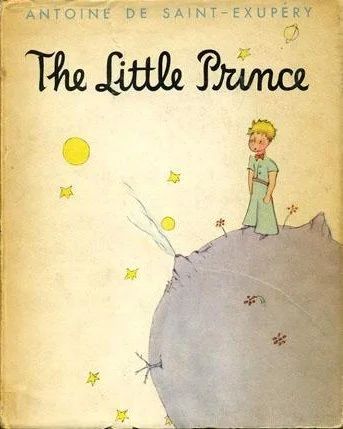Empaths And Pharmaceuticals
The international trade in psychiatric drugs is in the hundreds of billions. Forty million Americans take them.
In nearly every instance, suffering human beings are not talked to, cared for, or helped. They are simply given a prescription. It’s called “somatic psychiatry,” and the fundamental, underlying concept is that people suffer because their brains are defective. The drugs are supposed to improve brain function.
The trade is so huge largely because these drugs are designed to make people psychologically or physically dependent upon them, which creates long-term recurring revenue. Doctors are incentivised in a myriad of ways to promote drugs to their patients, pocketing extra money when they make the sale.
The Pharmaceutical Racket
But there are numerous studies — rigorous, academic ones — that suggest these drugs don’t actually help much at all. It is amazing to me that we have to run a study to figure this out. How could a drug possibly help someone who was suffering from psychological, emotional, spiritual trauma? They have to come to terms with the cause of their trauma, and learn to heal themselves through understanding and mental training.
These drugs also have dangerously toxic effects on both the mind and the body. While there might be rare cases where these drugs can actually cure someone of a brain chemistry imbalance, the notion that all suffering is a brain chemistry imbalance is dangerous. I have three clients who worked in big Pharma, and we had to agree that we would never discuss their work, because I think what they do is evil. The actions of big Pharma are exactly the opposite of an empath. They’re like the leaders of a cigarette company or something.
True, there are people with strange brain chemistry imbalances, and for those people, certain pharmaceuticals can be really helpful. However, conditions like that are very rare. The vast majority of time, people are suffering deep in their consciousness and in their soul, and no pharmaceutical can help you there.
In fact, psychoactive pharmaceuticals are designed to build up in your system so they can have a sustained impact on your brain chemistry. Because of this, the vast majority of the time they are prescribed, the reason has nothing to do with an actual, measured, for-real brain chemistry imbalance and everything to do with a dismissive blow to the head that will dull the mind so it stops suffering.
Almost all of them come with dire warnings that you are not to stop taking them cold-turkey, because your brain has become either physically dependent upon them or chronically altered by metabolizing them. If you stop suddenly, the abrupt shift in your consciousness can be dangerously disorienting. Much easier to just keep taking it. Oh, and that’s also a long-term, recurring sale for a pharmaceutical company.
The Victims of Prescription Drugs
Most people are not in tune with the toxicity of these medications, and they get to a point where they want to stop all of them, and by then they are worse than ever before.
And why would forty million Americans need something like this? You don’t want to think that people can do these things to other people, but when money is involved, everything gets really weird. You don’t want to hate the doctors making and prescribing them. You want to believe that they believe they are helping people. But it is very difficult to sustain that illusion, because the negative effects of these drugs are so pronounced and widespread.
Suffering is an affliction of the consciousness, and only working consciously can address it. Sadly, a lot of therapy fails to deliver this. Therapists often don’t hear their patients because they get a referral, often with a prescription included, and everything is already decided before they even have a conversation. They don’t listen to the story. They don’t listen for what is not said, which is often as important as what is said. They are like anyone else, thinking about what they are going to say next instead of listening to what the patient is saying now. And what they plan to say simply reinforces the “diagnosis” and validates the “prescription.”
True Therapy for Empaths
A real therapeutic process takes a journey with someone, creating the journey together with them. My graduate work was differentiating diagnosis, and my specialty was narcissists. This is a real personality disorder, which is just a fancy way of saying someone is just a jerk, and they they don’t care. Sometimes there is a brain chemistry issue, but almost always it can be managed very effectively with diet.
Most of the time, what the patient needs is a journey. Why are they are jerk? Why don’ they care? In my experience, the answer is almost always that they were so traumatized before they are four that they must hurt you. They will love you for 5 seconds and then they will hate you. They respond to people and events from this deeply traumatized state of mind, which comes along with beliefs about reality that are so deep the patient doesn’t even know they are beliefs, much less question them. The journey takes time, and it takes effort, but even a narcissist can usually do it.
Empaths have an even more difficult time of this. It can be harder for them than for narcissists or other similarly self-obsessed people. This is because their journey has included huge swaths of other people’s journeys. Since others have been opening up to you deeply and intensely for your whole life, you can lose yourself in their stories.
Sometimes empaths believe that they are deeply engaged in their own self-discovery, when in fact they are missing the most important journey they need to take. Often, they need a guide, which is what therapy ought to be. They need to return to that age of four when the world began to assault them. And they need to go back to the age of ten, when they had experiences of being fully in the empathic flow for the first time.
This takes time and effort. The internal dialog can have a lot of difficult parts to it. Patients can wonder if taking the real route to mental health is “right for them.” They can be tempted to take pharmaceuticals as a quick way to dull the symptoms of their extraordinary minds. Or, worse, they can believe that there really is something defective about their brain, and they need an internationally marketed product to repair it. They can go off the rails pretty easily.
But they come back. This is why those studies find that the pharmaceuticals don’t work: The only way to come into your own and to direct the powers of your consciousness is through self-awareness. Pharmaceuticals simply cannot help you there.
Photo by Zulmaury Saavedra on Unsplash






